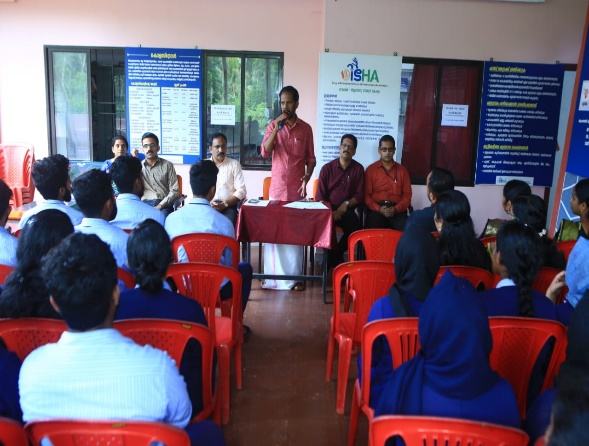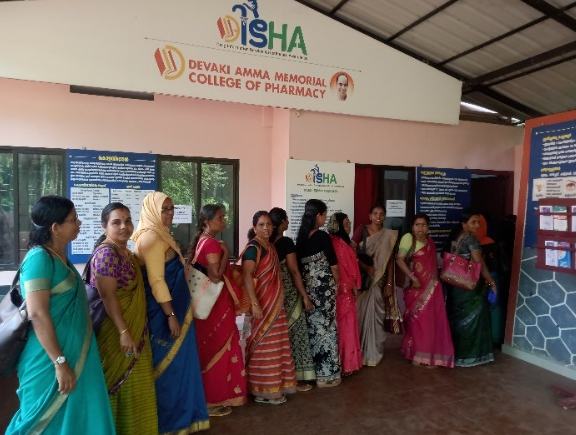

Health screening and providing necessary education to the general public and make them skilled during crisis.
Vitals such as blood pressure, pulse rate, heart rate, blood glucose, BMI assessments are done for the general public who approaches DISHA.
Reason for the Disease, Severity level, and Prognosis. Laboratory test briefing. Lifestyle, Diet, Medication counseling, Precautions, and if necessary Patient Information Leaflet will also be provided.
First aid, OTC, Vaccination/ Immunization.
Greet the patient or the person who intend to use the service. Self-introduction of the service provider with name, designation, purpose and services provided in DISHA.
Get the patient details such as name, address, age, occupation, life style, family history, health issues, other concerns and drugs prescribed by his/her doctor.
Give a detailed description about the disease viz., why this disease has arisen.
Various reasons of the disease found in the patient.
Give explanation about the major and common signs of the disease or any unexpected signs shown by the body and precaution.
Risk factors such as disease history of the patient, past medication details, patient’s life style.
Life style to be followed appropriate, diet plan for the patient, required physical activities as per the disease condition, and change in social habits required.
- Collect all the prescriptions or details about the drugs used by the patient in order to get detailed information about the patient condition.
- If the prescription is not available or unable to read, we can also collect the strips.
- Identify the drug’s content by the help of any external source
- Give complete details about the drugs to the patient.
- Find the appropriateness of the medication used in this patient’s condition.
- Explain what all are the benefits produced by the drug in this disease state.
Eg: Blood pressure reduced by anti-hypertensive, blood glucose reduced by anti-diabetics.
- Explain about the disease like whether it is completely curable or not
Eg: Diabetes mellitus; It is not completely curable by the medication
- Explain the diseases that can be completely prevent by altering life style or modifying therapy.
- Identify the duration of action of the medication and ensure the patient is taking the medication in proper interval.
- Explain the time taken by the medication to act and the importance of administering it in a proper interval
- Give an explanation about the route of administration of the drug and its importance.
Eg: Oral, IV, IM, Nasal, Topical etc.
- Nitroglycerin tablets are usually placed beneath the tongue for fast absorption.
So many special dosage forms are available so explain the need of using these dosage forms in this condition if any.
- Special procedures for each dosage must be followed during the administration so instructions should be given with demonstration.
-Convey the importance of taking medication in proper interval.
- Counsel about the complications if any dose is missed.
- What to do if a dose is missed must be explained.
Explain about the common ADR and what precaution should take to prevent the ADR What to do if an ADR is identified immediately.
- Identify the drug-drug and drug-food interaction by using external sources.
- Take complete diet plan of the patient and report if any interaction is present.
- Convey the complications associated with drug-drug and drug-food interaction.
- Special storage conditions should follow properly for some medication
Eg: Insulin
- Importance of storage condition and problems developed if the drug is not properly stored can be explained.
Depending up on the need of the patient we provide the health monitoring services like BP checking, Blood group detection, checking of height and weight, BMI.
After counselling and health monitoring of the persons we record the things in a specially designed health card and provide this to the patient for future reference and comparison, ask them to bring this card while coming next time to DISHA.
